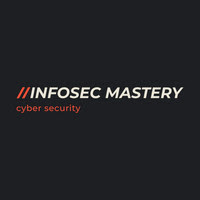Introduction:
In today's interconnected world, cybersecurity is of paramount importance. With cyber threats becoming increasingly sophisticated, organizations are constantly seeking skilled professionals who can protect their digital assets. Ethical hackers, also known as white-hat hackers, play a vital role in safeguarding systems and identifying vulnerabilities before malicious actors can exploit them. If you aspire to become an ethical hacker, here are the top 10 essential skills you should develop.
1. Networking Fundamentals:
A strong foundation in networking is crucial for ethical hackers. Understanding protocols, network architecture, and how data flows across various layers enables you to identify potential attack vectors and secure networks effectively.
2. Operating Systems:
Proficiency in multiple operating systems, including Windows, Linux, and macOS, is essential. Ethical hackers must be familiar with system configurations, command-line interfaces, and file systems to identify vulnerabilities specific to each platform.
3. Programming and Scripting:
Knowledge of programming languages such as Python, C, and Java is invaluable for ethical hackers. Programming skills empower you to automate tasks, write exploits, and analyze code to uncover security flaws.
4. Web Application Security:
Web applications are a common target for attackers. Understanding web technologies, such as HTML, CSS, JavaScript, and popular frameworks, allows ethical hackers to assess vulnerabilities like cross-site scripting (XSS), SQL injection, and insecure direct object references.
5. Cryptography:
A sound understanding of cryptographic concepts and algorithms is vital for ethical hackers. Knowledge of encryption, digital signatures, secure key exchange, and cryptographic protocols equips you to protect sensitive data and assess the security of cryptographic implementations.
6. Vulnerability Assessment and Penetration Testing:
Ethical hackers should be skilled in vulnerability assessment and penetration testing methodologies. This includes scanning networks, identifying weaknesses, exploiting vulnerabilities, and generating comprehensive reports to help organizations address security gaps.
7. Social Engineering:
Humans are often the weakest link in cybersecurity. Ethical hackers must understand social engineering techniques to test an organization's human vulnerabilities. Skills in phishing, pretexting, and manipulation techniques help identify potential risks associated with social engineering attacks.
8. Reverse Engineering:
Reverse engineering is the process of dissecting software or hardware to understand its inner workings. Proficiency in reverse engineering tools and techniques helps ethical hackers analyze malware, understand proprietary protocols, and identify security weaknesses.
9. Wireless Network Security:
With the ubiquity of wireless networks, securing them is paramount. Ethical hackers should have a strong grasp of wireless security protocols like WPA2, WPA3, and the ability to analyze wireless traffic using tools like Wireshark to uncover vulnerabilities in Wi-Fi networks.
10. Continuous Learning and Curiosity:
Cybersecurity is a rapidly evolving field, and staying up-to-date with the latest trends, vulnerabilities, and defense mechanisms is crucial. Ethical hackers should possess a passion for continuous learning, an inquisitive mindset, and a willingness to explore new technologies and techniques.
Conclusion:
Becoming a skilled ethical hacker requires a diverse range of skills, from networking and programming to cryptography and social engineering. The ability to think like a hacker while adhering to ethical standards is the hallmark of a successful white-hat professional. By developing and honing these essential skills, you can contribute to a safer digital landscape, protect organizations from cyber threats, and build a rewarding career in ethical hacking. Remember, with great power comes great responsibility, and ethical hackers play a crucial role in defending against the ever-growing tide of cybercrime.







0 Comments